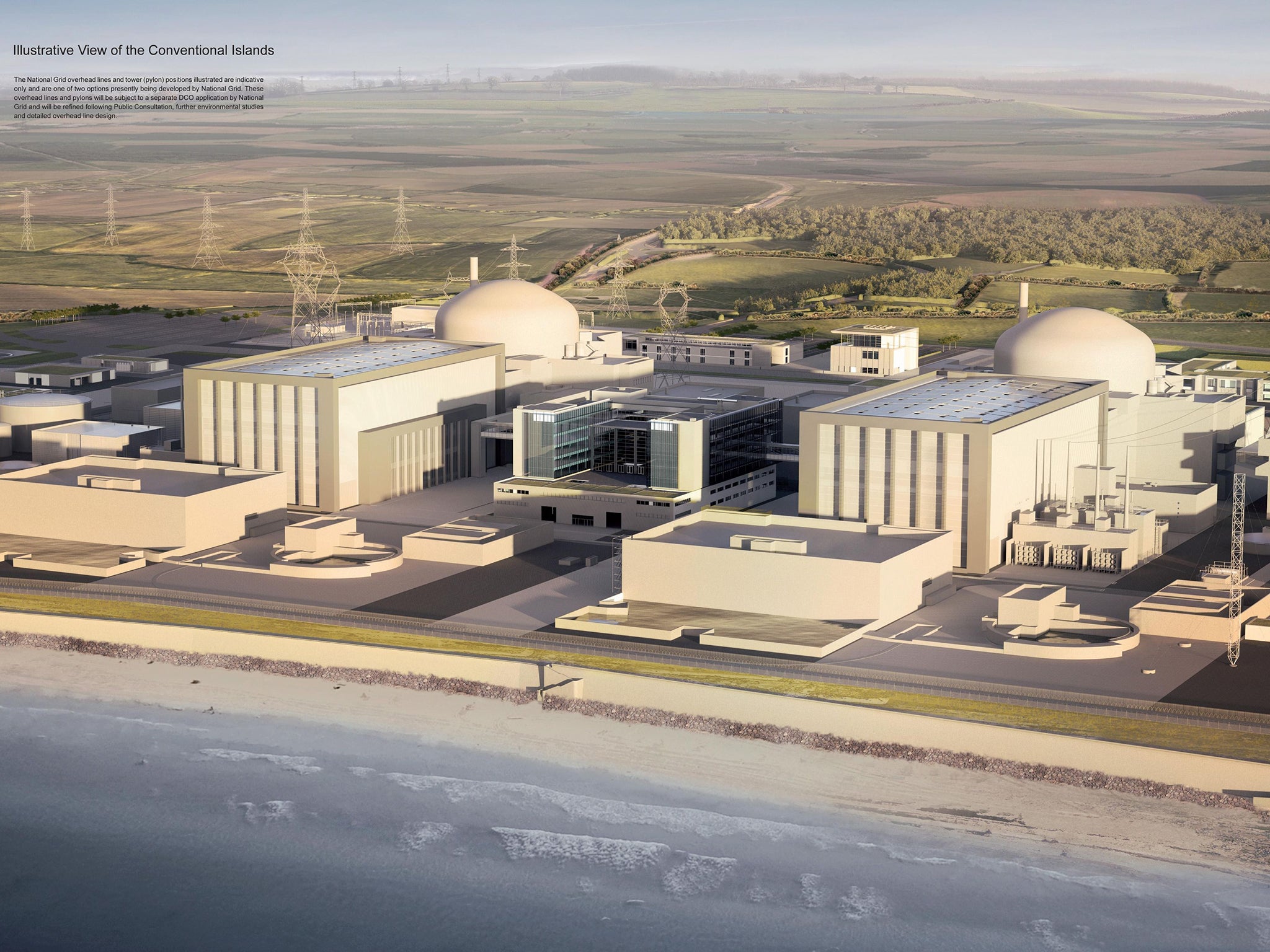EDF finally gives green light to Hinkley Point nuclear plant
Board votes by 10 to 7 in favour of proceeding with the UK's first new power station in twenty years. But UK government holds back from approving deal

The board of the French energy giant EDF has finally given its approval to the Hinkley Point nuclear project.
The board of the company - which is more than 80 per cent owned by the French state - voted in favour of proceeding with the UK's first new power station in twenty years.
But in a surprise development, the UK's Business Secretary Greg Clark has said the government will “consider carefully” before approving the deal, leaving open the possibility that it may yet still not go ahead.
"The UK needs a reliable and secure energy supply and the government believes that nuclear energy is an important part of the mix" Mr Clark said.
"The government will now consider carefully all the component parts of this project and make its decision in the early autumn.”
The expectation was that the UK government, which has previously been an enthusiastic supporter of the agreement, would sign up without delay.
Sources said the EDF vote had been carried by 10 votes to 7 on the board.
Six union representatives on the board as well as Laurence Parisot, the former head of the French employers' organisation, are said to have opposed going ahead.
Earlier in the day, Gerard Magnin, who has a background in alternative energies, had resigned from the board saying that the £18bn project is too financially risky for EDF and will divert France away from investment in renewable energy.
Despite today's green light the resignation of Magnin and the seven other votes against reflect growing doubts about Hinkley Point and the financial capacity for EDF to deliver the plant.
The firm's chief financial officer, Thomas Piquemal, resigned in March over the project, saying it would jeopardise EDF's financial situation.
“As a board member proposed by the government shareholder, I no longer want to support a strategy that I do not agree with,” Magnin wrote in a letter to EDF chief executive Jean-Bernard Levy which has been seen by Reuters.
EDF is listed on the French stock exchange but the French state retains an 81 per cent stake.
When the project to build a state-of-the art European Pressurised Reactor (EPR) on the Somerset coast was originally outlined in October 2014 EDF was only supposed to take a 50 per cent stake.
The rest was supposed to be financed by Chinese state companies and another majority state-owned French-nuclear engineering firm Areva.
But Areva has subsquently stumbled financially and its nuclear unit has been absorbed by EDF. And the Chinese have said they will fund no more than a third of the project, leaving EDF to finance 66 per cent of Hinkely Point.
Since January 2015 EDF's share price has fallen by 50 per cent and its market capitalisation is just €22bn, close to the entire Hinkley Point project value.
The company, which has €37.4bn of debt, also needs to spend €50bn to upgrade its French nuclear plants over the next decade.
“Let's hope that Hinkley Point will not drag EDF in the same abyss as Areva” said Magnin in his letter.
The Hinkley Point reactor is also controversial in the UK as the UK government has agreed to buy electricity from the plant for 35 years at a price that is more than twice current market rates.
Tony Ward, head of power and utilities at the accountacy firm EY said the EDF decision was a "major vote of confidence in the UK’s energy market, and in the vital role that new nuclear will play in delivering the UK’s low carbon aspirations."
“The project represents a significant milestone in the United Kingdom’s energy future. It will play a key role in further securing and decarbonising our energy supply, putting us on the right path to a sustainable energy mix" said the CBI's deputy Director-General Josh Hardie.
But John Sauven, the executive director of Greenpeace, noted that the EDF board vote was closer than expected.
“Today's decision doesn’t prove the UK is open for business post Brexit - it just shows the Hinkley deal became too big to fail in the eyes of British and French politicians” he said.
Subscribe to Independent Premium to bookmark this article
Want to bookmark your favourite articles and stories to read or reference later? Start your Independent Premium subscription today.

Join our commenting forum
Join thought-provoking conversations, follow other Independent readers and see their replies